Curtis explains how keeping turtles and organic gardening go hand-in-hand.
Spring gets all the attention, and with good reason. It’s the season when all awakens. Birds migrate back from their winter grounds, flowers are blooming, song birds are singing, trees leaf out and the grass greens up. And if you keep turtles, like I do, it’s the time when you see some friends that you haven’t seen in four or five months, like my 3-toed and Eastern box turtles.
I also know spring’s arrived when radio, TV and the Internet bombard your senses with ads for fertilizers and pesticides. It’s expected. Along with greening grass comes someone who wants to sell you something to make it even more green. With fire ants emerging comes someone telling you how to nuke them. But there’s a real danger in some of the products you, the homeowner, gardener and landscaper are being sold. Especially for those of you that keep turtles outside.
I want to use this blog to share the dangers of synthetic fertilizers and pesticides with you and give you some safe, natural approaches that work just as well or better to ensure the safety of your turtles this year. Afterall, telling you to not use something without giving you a solution would be frustrating, right?
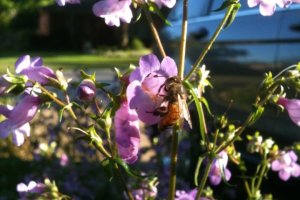 Synthetic products by definition duplicate a process that nature has been using forever. The biggest problem I have with synthetic fertilizers and pesticides is that they are chemically-based, and those chemicals are toxic. They are poisons. Many are derived from chemicals used in chemical warfare, such as cyanide.
Synthetic products by definition duplicate a process that nature has been using forever. The biggest problem I have with synthetic fertilizers and pesticides is that they are chemically-based, and those chemicals are toxic. They are poisons. Many are derived from chemicals used in chemical warfare, such as cyanide.
You know the ads and the products. Scotts Bonus S Weed and Feed, Roundup, Ortho Bug-B-Gon, Miracle Gro and so on. They all paint a great picture and try to sell you the suburban landscape dream. Green grass, no bugs, no fuss and no mess. But there are several problems with that thinking.
All synthetic-based fertilizers and pesticides pose major health risks to you, your kids, your dog, your turtles, wildlife like honeybees and butterflies, your neighbors and the environment.
Herbicides:
Let’s take Roundup as an example. It works. There’s no doubt about it. But along with weed-killing power comes serious potential health risks. The main ingredient in Roundup, glyphosate, has been linked to many health concerns over the years. But just a few years ago, scientists found that the inert, or inactive, yes, the inactive ingredients in Roundup kills human embryonic, placental and umbilical cord cells. And yet every weekend you can see families spraying this chemical at will. I saw a father spraying Roundup all over his front yard last weekend while his kids ran around the yard.
There are several simple solutions to kill weeds but not endanger ourselves or wildlife using organic approaches and products.
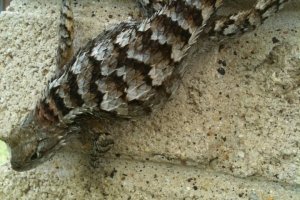 The first is to use your bare hands and pull those weeds, roots and all. You can also use a highly acid white vinegar, 10 or 20% acidity, to spray on weeds on a warm, sunny day to bring about their demise. And the best way to keep weeds from taking over is by enriching your soil each year with organic amendments, such as compost, earthworm castings, dry molasses, grass clippings, and organic fertilizer. You see, weeds like dandelion, henbit, thistle, spurge, they all thrive in soil with little to no fertility. When you use a synthetic fertilizer, you’re killing the living microbes in the soil (the fertility of the soil), making whatever plant you’re feeding reliant on that fertilizer since it has no microbes to naturally derive nutrients from. The end result is that as you kill the fertility of the soil with synthetic fertilizers, your soil becomes a breeding ground for weed seeds.
The first is to use your bare hands and pull those weeds, roots and all. You can also use a highly acid white vinegar, 10 or 20% acidity, to spray on weeds on a warm, sunny day to bring about their demise. And the best way to keep weeds from taking over is by enriching your soil each year with organic amendments, such as compost, earthworm castings, dry molasses, grass clippings, and organic fertilizer. You see, weeds like dandelion, henbit, thistle, spurge, they all thrive in soil with little to no fertility. When you use a synthetic fertilizer, you’re killing the living microbes in the soil (the fertility of the soil), making whatever plant you’re feeding reliant on that fertilizer since it has no microbes to naturally derive nutrients from. The end result is that as you kill the fertility of the soil with synthetic fertilizers, your soil becomes a breeding ground for weed seeds.
Fertilizers:
Chemical companies want you to feed your lawn four times a year, not because your lawn needs it or it’s good for your lawn, but because that’s what they sell and they have to make money. But did you know that you could feed your lawn just once a year or not at all and have the healthiest lawn on the block? By using a mulching mower, your grass can get all the fertilizer it needs every time you mow by keeping those nitrogen rich grass clippings in your lawn instead bagging them up and sending them to the dump. In the fall, you can mulch your fallen leaves into the lawn for a much-needed carbon boost.
In addition, there are organic, all-natural fertilizers made up of plant and animal by-products like nature has used since the beginning of time to feed all other plants, including the lawn. There are organic lawn, flower, veggie, and shrub fertilizers. Every region of the country has its own companies that specialize in organic fertilizers, so check with your local, independent garden center for your regional line.
Pesticides:
All are poison by their very nature. If you keep turtles outside, you have no business using synthetic pesticides. Really, no gardener has any business using pesticides, as they often kill beneficial insects such as honeybees, ladybugs, butterflies, etc., in the process.
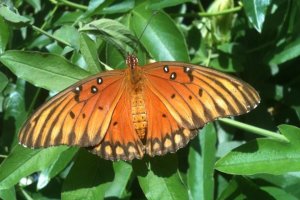 All commonly used pesticides pose a myriad of risks to your turtles. Respiratory problems, eye irritation, infertility, the list goes on. Then take into account that if you spray a bug or plant that your turtle ends up eating, they are subsequently ingesting the pesticide you applied. As a turtle keeper, I am extremely selective about the organic pesticides I use. Off the top of my head, I believe I only use a fire ant control, and I use an organic bait outside the turtle enclosures and inside I use a soil drench made of compost tea, orange oil, and molasses, the later only affects fire ants and actually enriches the soil.
All commonly used pesticides pose a myriad of risks to your turtles. Respiratory problems, eye irritation, infertility, the list goes on. Then take into account that if you spray a bug or plant that your turtle ends up eating, they are subsequently ingesting the pesticide you applied. As a turtle keeper, I am extremely selective about the organic pesticides I use. Off the top of my head, I believe I only use a fire ant control, and I use an organic bait outside the turtle enclosures and inside I use a soil drench made of compost tea, orange oil, and molasses, the later only affects fire ants and actually enriches the soil.
For mosquitos, I use mosquito fish and organic mosquito dunks in standing water around my yard and natural incense sticks around the deck.
The philosophy of organic pesticides or pest control, is to use natural controls. For instance, instead of using a toxic spray to kill aphids or scale, you can buy and release ladybugs, whose larva and adults feed on these pests. There are organic approaches to kill or control most any pests, so check with your local, independent garden center that specializes in organic products to find the one that can control your pest. But, you will find, that once you switch to an all-organic approach, pests even out. The wildlife that you will attract to your yard by not using toxic chemicals will keep pests in check.
There are so many rewards to having an organic lawn and garden. For me, its having the peace of mind that I can’t accidentally poison any of my pets or any wildlife that feed and live in my garden. I’ve posted a few pictures throughout this blog of some of the wildlife that makes my garden home because of my organic approach.
I would love to answer any questions you may have about going organic or eliminating synthetic pesticides and fertilizers from your gardening arsenal this year. Leave a comment, let’s have a discussion. Being organic and environmentally responsible really is easy. As long as you keep in mind, “how would nature take care of this?” you’ll make the transition just fine. And your turtles will thank you.
- Dirt Doctor – Organic Answers
- Texas Discovery Gardens – Great resource for learning how to attract pollinators and beneficial wildlife
- Lawn Reform – Learn how to turn your boring turf into beneficial plantings


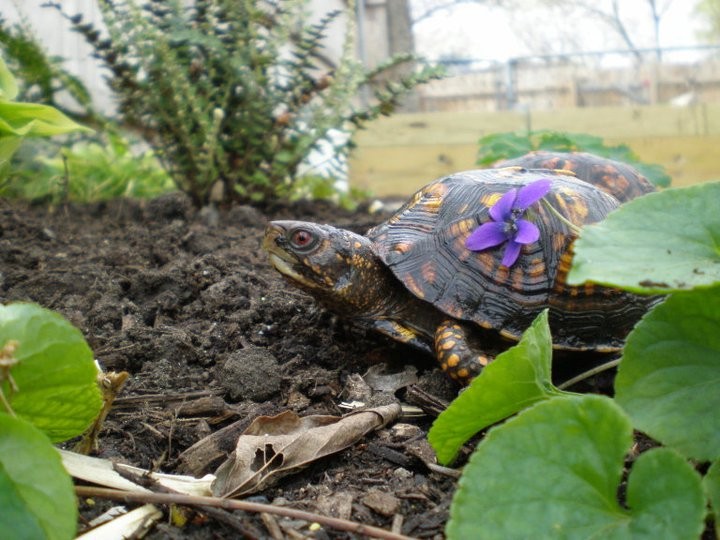
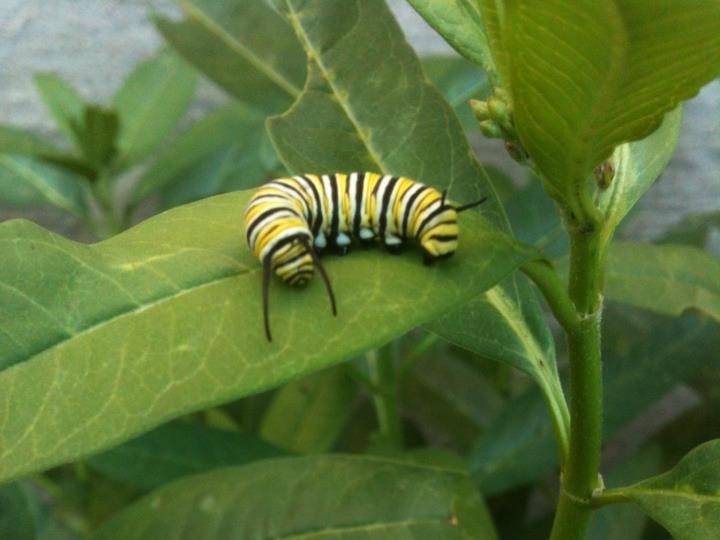
Going out to try the 10% vinegar on my weeds this afternoon!
Awesome stuff. I can say with confidence that there isn’t another article like this out there. Nice job Curtis.
I have a three toed box turtle in an indoor terrarium,and I’m having trouble finding a good soil to use. What kind of soil would you recommend?